‘The same gumbo’: Trombone Shorty bringing musical flavor of New Orleans back to Lexington
As you listen to Troy Andrews describe it, New Orleans music is fueled by more than mere history. Sure, heritage has a major role in its creation and enduring appeal. But the musician known worldwide as Trombone Shorty knows that properly performing the music of his homeland means understanding how tradition can mingle with more modern views of soul and groove.
That means appreciating contemporary New Orleans champions of funk and hip-hop as well as jazz, soul and brass band elders. He has understood that lesson since he began playing music at the age of four, but its importance was enforced by one of New Orleans’ most revered song stylists and artistic ambassadors, the late Allen Toussaint.
“He said, ‘Don’t do what we did. Do what you do and make it your own,’” Andrews said. “I took that to heart. That’s what I was doing naturally, but when he told me that it just solidified the way I was thinking. ‘Don’t do what we did, just learn from it and keep adding to it. Become your own person, but still represent New Orleans.’
“No matter how it plays out, we all have our own different things. The Neville Brothers sound different from Fats Domino, Lil’ Wayne sounds different from Master P. It’s all coming from the same city, the same gumbo. I’m just playing off of all the experiences I’ve been part of through music.”
Lexington received a crash course in Andrews’ multi-genre, cross-generational sound when he introduced himself to the region by way of an outrageous outdoor concert at the Robert F. Stephens Courthouse Plaza during celebrations surrounding the 2010 World Equestrian Games. For a New Orleans audience, Trombone Shorty’s music had been a long-admired treasure. But in Kentucky, and cities around the mid-West at the time that got their first shot of Andrews in concert, the effect was profound and immediate.
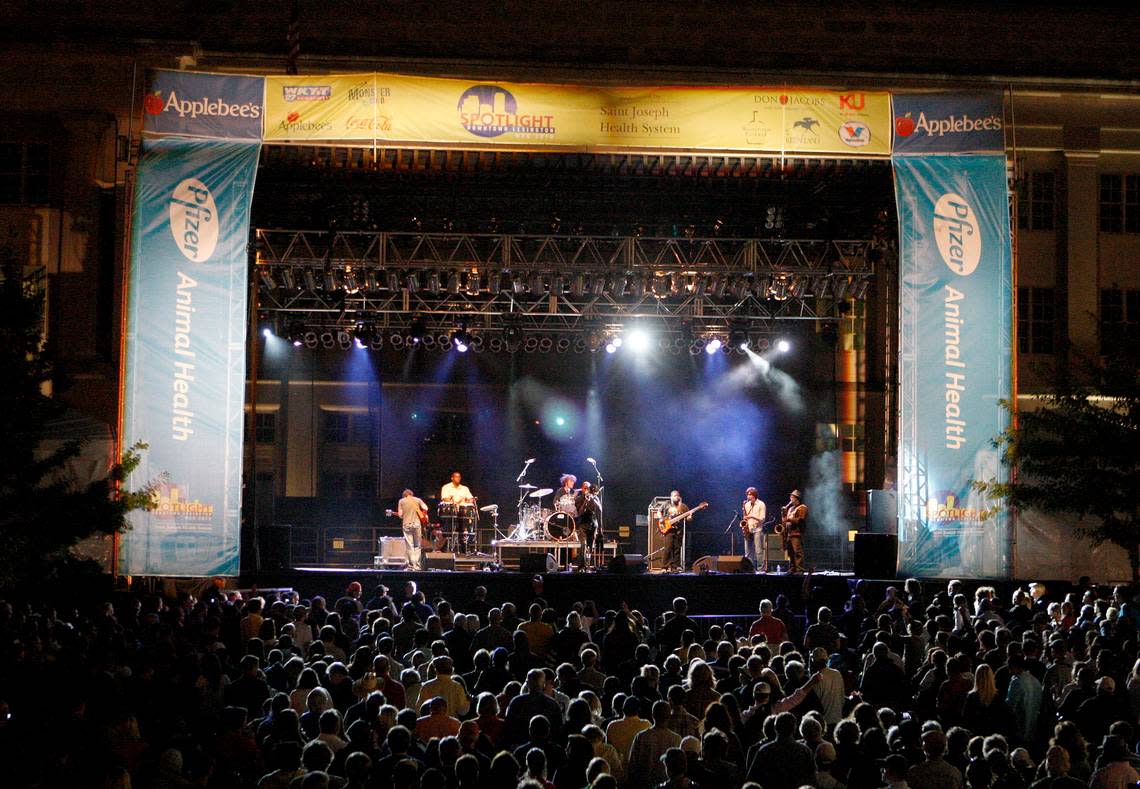
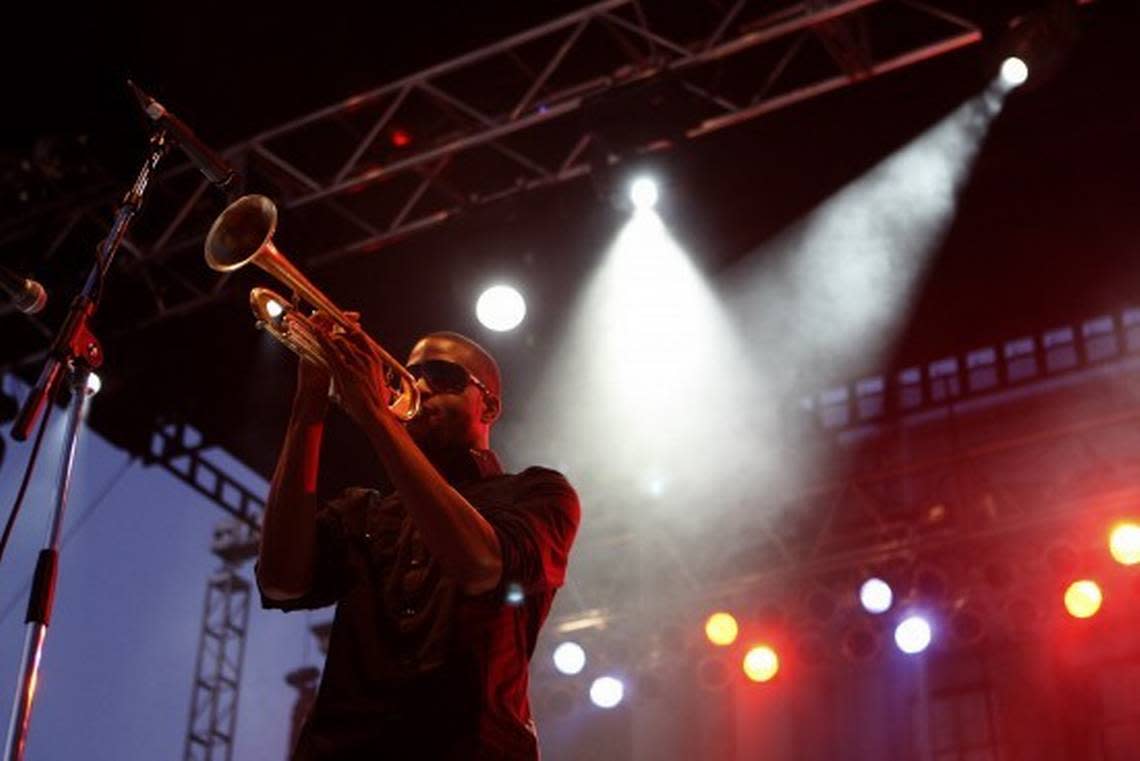
“We’re experiencing them and they’re experiencing us,” Andrews said of playing to anyone unfamiliar with his music. “There is just this wonderful connection that begins. It’s like a spiritual thing happens. We can see it, but we can’t explain it. We all feel it, though.”
In the 12 years since his Lexington debut, which has included a trio of return performances that will be topped by an Opera House concert on Sept. 21, Andrews has become one of the most visible global representatives of New Orleans music.
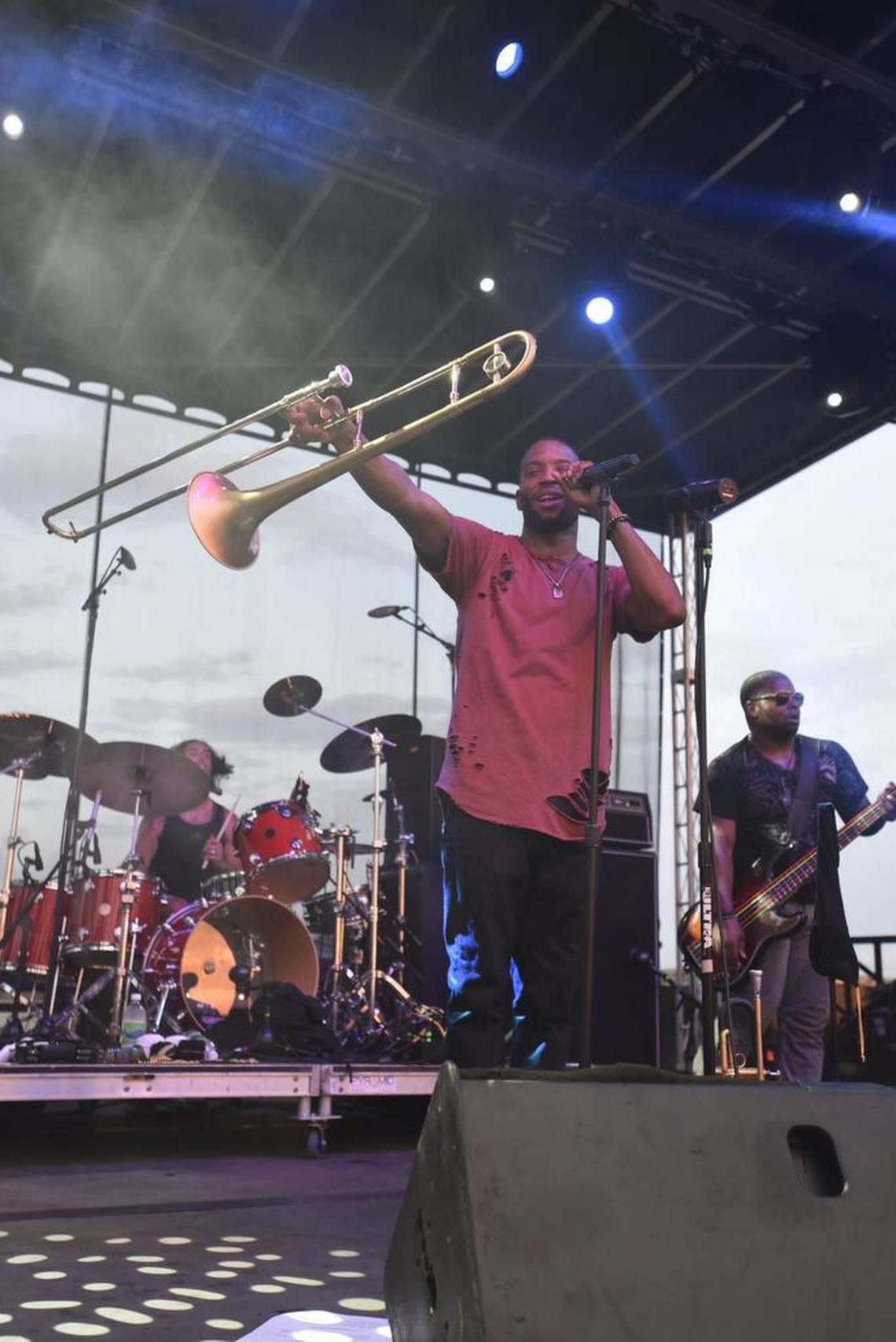
He concluded the “In Memoriam” segment of the 2020 Grammy Awards, which acknowledged the passing of New Orleans giants Dr. John and Arts Neville, with a jubilant street parade jam alongside the Preservation Hall Jazz Band. He has wound up on records by such stylistically disparate artists as Lenny Kravitz, Dierks Bentley and Ringo Starr. He even performed in animation form for a 2018 episode of “The Simpsons.”
But for Andrews, who has long doubled as a virtuosic trumpeter as well as trombonist, championing the wide world of New Orleans music hit a highpoint this summer with the return of his traveling Crescent City caravan known as the Voodoo Threauxdown Tour. The trek brought Andrews and his band Orleans Avenue together with the popular funk-soul troupe Tank and the Bangas, two generations of the famed Neville family (vocalist/percussionist Cyril and his nephew Ian’s groove troupe Dumpstaphunk), famed Meters bassist/vocalist George Porter Jr., hip-hop/bounce music stylist Big Freedia and the brass ensemble Soul Rebels.
“I just wanted to bring every corner of New Orleans music on the road,” Andrews said. “We tour so much on our own that we miss home, so I just thought it would be cool to continue to do the Voodoo Threauxdown tour every few years whenever we can. The beautiful thing about it was I could watch from the side of the stage when Dumpstaphunk was playing, then later Big Freedia and Tank and the Bangas would watch me every night. It was an emotional tour for all of us because we all love each other and support each other. I’m very happy to be able to present this New Orleans music, our own interpretations of all styles of music coming from New Orleans, to everyone in the United States.”
By the time Voodoo Threauxdown began touring rounds in June, Andrews was basking in the spring triumphs of two recordings. The first was a Grammy win in April for his contributions to “We Are,” the Album of the Year work by life-long friend Jon Batiste.
Later that month came the newest Trombone Shorty album, “Lifted.” The record is a typically varied sampling of New Orleans groove tunes but with an organic feel that reflects the drive of his live performances. The musical journey the album envelops is reflected by its cover shot — a photo of a two-year-old Andrews, plastic horn in hand, being held proudly high by his mother (who died in November 2021) during a second-line parade in New Orleans.
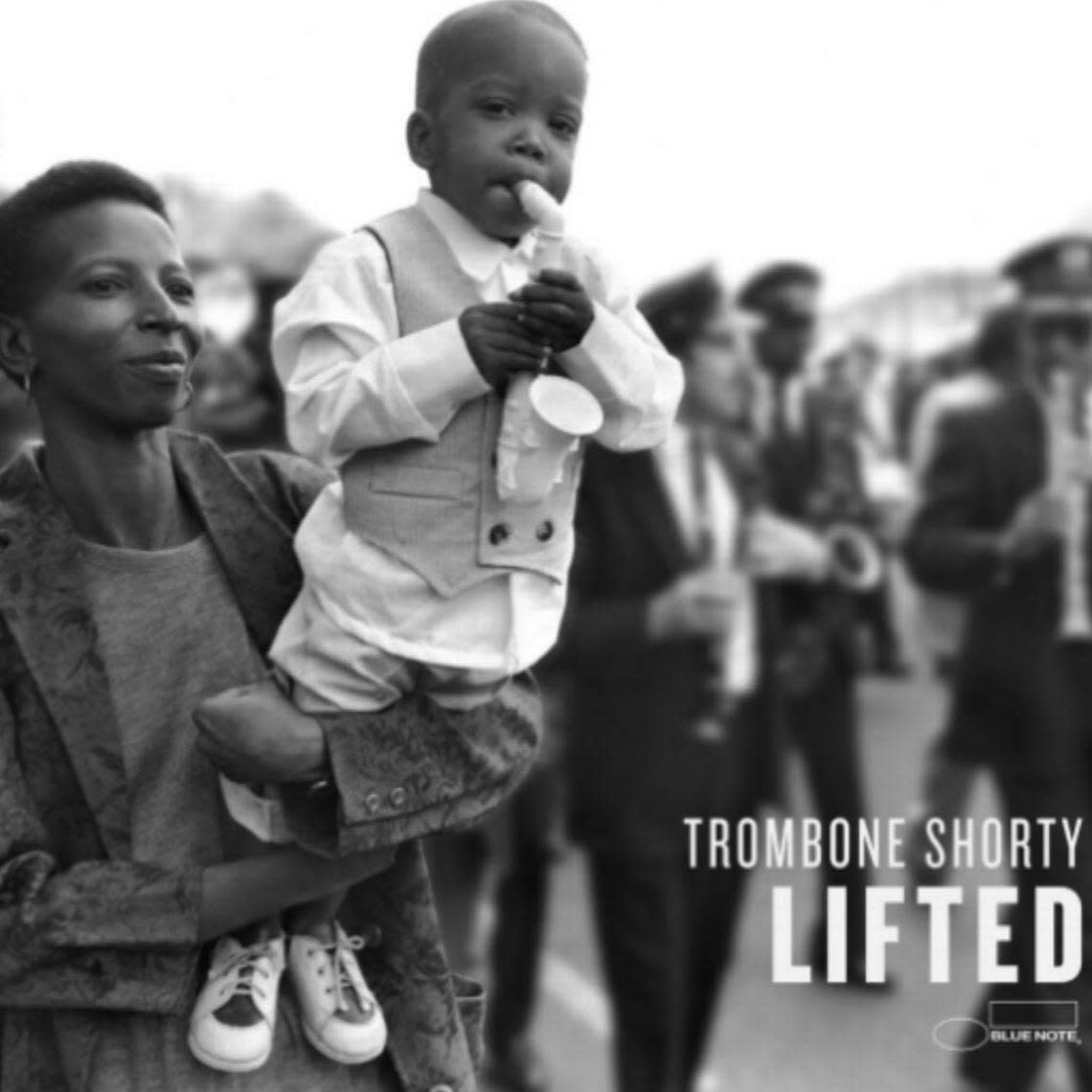
“When we’re in the studio, we obviously want to make a good record, something people in Lexington or wherever we may be touring can understand without seeing us live. Sometimes I realize that it’s hard for that music to translate on an album because we have been so much of a live act. So I tried to find a balance on this album. I told the band going in, ‘We’re going to learn this music as we’re writing it, but in recording it, I want us to approach this as if we’re about to hit the stage.’ I’ve never told them that before when we were in the studio, so we had lots of this live energy happening.”
Such a game plan is an extension of what remains as integral aspect of New Orleans music – its sense of involvement. From street parades and funerals to global tours by artists like Andrews, it remains people music, a sound that directly involves audiences as it is being created.
“I started playing live around people in parades in New Orleans where the crowd is moving with the band. You’re not really performing in front of a crowd. The crowd is part of what you do. You see the people moving with the band and even become part of the band. Some of them are picking up bottles and trash can tops to become part of the percussion section. The audience and the way we play onstage all becomes one. It’s a beautiful, spiritual experience.”
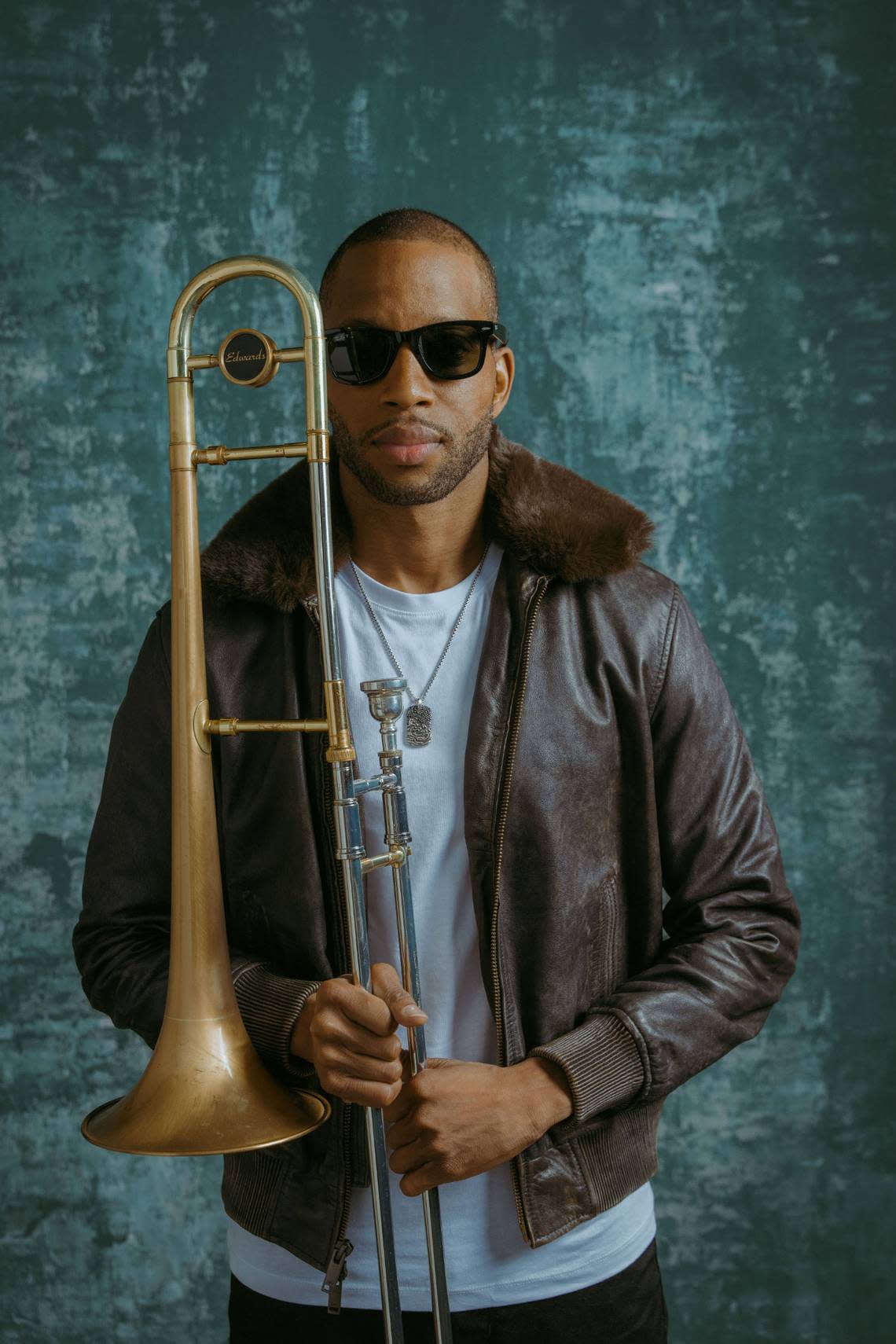
Trombone Shorty and Orleans Avenue
When: 8 p.m. Sept. 21
Where: Lexington Opera House, 401 W. Short.
Tickets: $49.50-$75 through ticketmaster.com.
